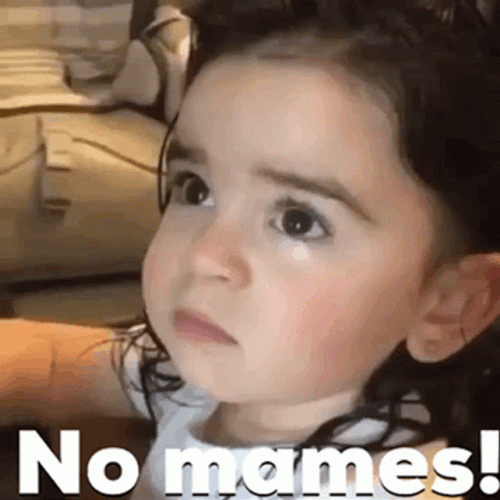Mexico is known for its vibrant culture, traditional heritage, and a lively language. This language isn't just limited to the formal Spanish you would learn from a textbook, but a mixture of slangs and phrases, full of flavor and vividness. These phrases, steeped in cultural significance, add depth and richness to everyday conversation. They often deliver a punch of emotion or humor and are an essential part of immersing oneself in Mexican society. Here's a breakdown of some popular Mexican slang words and phrases to help you navigate the spirited streets of Mexico.

Practical Examples to Learn Mexican Slang
Learning mexican spanish slangs is a great way to understand the colloquial language of a particular region and make your speech more natural. Here are a few practical ways to learn Mexican slang:
Watch Mexican YouTubers or Twitch Streamers
Following Mexican YouTubers or Twitch streamers can give you insights into popular Mexican slang. You'll hear the language as it's genuinely spoken, with all its unique expressions and colloquialisms. An example of a phrase you might hear is "¿Qué onda?" which translates to "What's up?".
Listen to Mexican Music and Watch Mexican TV Shows
Listening to Mexican music or watching Mexican TV shows and movies can also expose you to slang. For example, you might hear the term "chamba" in a song or TV show, which is a colloquial term for "work" or "job".
Read Also:


Practice with Native Speakers
If you have the opportunity to converse with native Mexican Spanish speakers, take it. Ask them to teach you common slang words and phrases. A conversation with a native speaker might introduce you to phrases like "estoy crudo," which means "I'm hungover".
Travel or Virtual Tours
If possible, traveling to Mexico can provide a rich, immersive experience. However, you can also take virtual tours or participate in online language exchange programs where you can pick up slang. During such interactions, you might hear "no manches," a phrase used to express disbelief, similar to saying "No way!" in English.
Remember, slang can vary greatly even within the same country, and it often changes over time. Always consider the context in which you're using slang, and be aware that some slang words may not be appropriate in all situations or conversations.
Use Language Learning Apps
Some language learning apps and websites offer lessons specifically on slang. For instance, you might learn that "chido" is a slang term for "cool" or "awesome".
Mastering Mexican Slangs with Lingopie
Learning Mexican slangs with Lingopie can be a fun and interactive process. Lingopie is a language learning platform that utilizes authentic video content like TV shows and movies to teach new languages, including Spanish. The immersive learning experience offered by Lingopie is particularly suitable for acquiring Mexican slangs. To learn Mexican slangs, simply select a Spanish-language series or movie from Mexico and start watching. As you watch, you will come across subtitles that are interactive, meaning you can click on any word or phrase you don't understand to get an instant translation. Additionally, Lingopie's content comes from real life, thus you will encounter a wide range of slangs used by native speakers. It offers a natural and enjoyable way to pick up Mexican slang while enjoying top-rated shows and movies. Be sure to repeat the phrases, imitate the pronunciation, and try using the slang in your conversations to further reinforce your learning. Happy learning with Lingopie!
No mames

Literally translating to "Don't suck it," this phrase is used to express disbelief or surprise, similar to the English expressions "Damn" or "No way". It captures a sense of shock and is used frequently in casual conversation.
No seas huevon/Dar hueva
Derived from the word 'huevo', meaning egg, these phrases are utilized to describe someone as lazy or sluggish. If someone is characterized as a 'huevon', it's as if they're as lethargic as gudetama - a popular lazy egg character. 'Dar hueva', on the other hand, implies that something is boring or dull.
Chafa

In colloquial Mexican language, 'Chafa' conveys disappointment. Phrases like "Que chafa," or "No seas tan chafa," can be translated as "That sucks," or "Don't be so sucky."
Huele a gas/Fuga
When it's time to leave in a hurry, Mexicans would say "Huele a gas" or "Fuga." These phrases, which literally mean "Smells like gas" and "(Gas) Leak," encapsulate the urgency of rushing out, similar to smelling gas leakage and fleeing from a potential fire.
Fresa
If you're imagining a strawberry right now, you're only half right. While 'Fresa' does mean strawberry in Spanish, in Mexican slang, it characterizes a stuck-up, self-absorbed person who could use a little humbling.
Hazme el paro
Here's a friendly phrase to remember. 'Paro' is a stand-in for 'favor'. So, "Me haces el paro?" or "Me hizo un paro," translates to "Can you do me a favor?" and "He did me a favor."
Malacopa

Picture this: a person at a party who has had too many drinks too quickly and is losing control. That's a 'Malacopa'. It's used to label someone who can't hold their liquor and typically creates chaos due to their low tolerance for alcohol.
Crudo

The aftereffects of being a 'Malacopa' are experienced the next day as a hangover, or 'cruda'. A person suffering from a hangover is described as 'crudo'.
Metiche

This term defines someone who is nosy and constantly prying into others' affairs. A 'Metiche' is a person who thrives on gossip, always ready to spill or sip the latest tea.
?utm_source=blog&utm_medium=lingopie&utm_campaign=banner&utm_term=Spanish&utm_creative=Slang&lmid=8006966&coupon=
Pendejo
One of the most frequently used words in the Mexican slang dictionary is 'Pendejo', which is a blunt way of calling someone a 'dumbass', 'idiot', or 'stupid'.

Summing up:
These phrases and slangs add a dash of authenticity to your Spanish conversation, making you sound more like a local. Understanding Mexican slang is not only about learning new words, but also about embracing a whole new cultural perspective. Remember, learning a language goes beyond the grammar rules and vocabulary; it's about understanding the people, their culture, and the vibrancy they bring to their communication. In that sense, Mexican slangs are just as significant as any other part of the Spanish language. So next time you engage in a chat with a Mexican friend, feel free to sprinkle some of these colorful slangs into the conversation







![30+ Modern English Slang Terms For Money [Guide]](/blog/content/images/size/w300/2025/06/Slang-term-for-money.jpg)
![5 Official Spanish Language Tests To Show Your Proficiency Level [Guide]](/blog/content/images/size/w300/2025/06/Spanish-Language-Tests.jpg)

![Why Memorizing Spanish Words Won’t Make You Fluent [Tips]](/blog/content/images/size/w300/2025/06/how-to-practice-spanish-vocabulary.jpg)